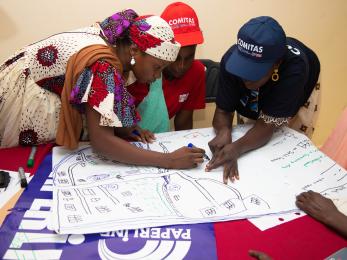Critical Choices: Assessing the Effects of Education and Civic Engagement on Somali Youths' Propensity Towards Violence

Download the full report ▸
Download the research brief ▸
Download the executive summary ▸
Understanding what works to reduce violence, including violent extremism, is a key priority for many policymakers. Despite this need, to date there is very little research evaluating the effects of development programs on violence reduction. To address this knowledge gap, Mercy Corps undertook a rigorous impact evaluation of a 5-year stability-focused youth program in Somalia known as the Somali Youth Leaders Initiative (SYLI).
The research compared the impact of two components of the SYLI program on youth propensity towards political violence: formal secondary education and civic engagement activities. Using survey data from Somaliland--where the program has been implemented the longest—we compared attitudes and reported violent behaviors among youth in the program and outside of it. In addition, we conducted in-depth interviews with teachers, community leaders, government officials and youth.
The study found that although the provision of secondary education through the SYLI program reduced the likelihood of youth participating in violence by 16%, it increased support for political violence by 11%. However, the combination of both secondary formal education and civic engagement through the SYLI program reduced the likelihood of youth both participating in (by 13%) and supporting (by 20%) political violence.
Taken as a whole, our findings signal that education by itself does not address the underlying drivers of potentially destabilizing actions such as support for political violence. Education is important, but just the first step. What matters to youth is not just having an opportunity to learn but also being able to use their skills to influence their lives, their communities and their nation. Hence, to reduce violence, youth development programs must address both the lack of skills and the lack of opportunities that hinder youth from succeeding.
Recommendations
Based on the results of this study, Mercy Corps is urging international donors, development agencies and the Government of Somalia to:
- Put political will and investment into the youth education and civic society pillars of the Somalia National Strategy and Action Plan for Preventing and Countering Violent Extremism.
- Ensure that youth education programs with violence reduction goals work to simultaneously improve access to school, enhance the quality of education and increase access to community or civic engagement opportunities.
- Provide greater support to initiatives to improve the quality of education in Somaliland, and other transitional parts of Somalia.
- Increase government investment, engagement and visibility in development projects, particularly in education.


